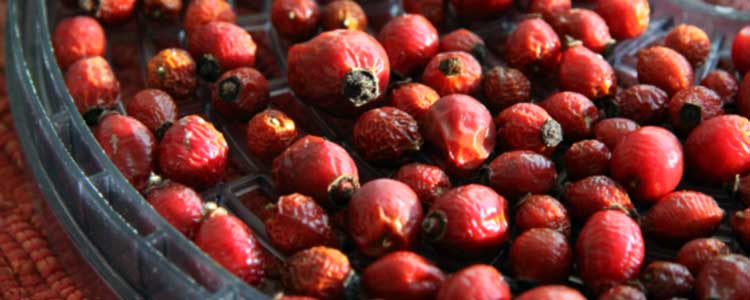 Many of us appreciate the beauty of roses without actually realizing how healthy and beneficial they can be. Seed pods are contained by certain varieties of roses, called rose hips. These have very practical uses including facial astringent all the way to delicious jam that you can eat. Rose-hip supplements are accessible for one’s overall health benefits, but they are also extremely helpful for horses to take care of specific illnesses. Read on to find out more.
Many of us appreciate the beauty of roses without actually realizing how healthy and beneficial they can be. Seed pods are contained by certain varieties of roses, called rose hips. These have very practical uses including facial astringent all the way to delicious jam that you can eat. Rose-hip supplements are accessible for one’s overall health benefits, but they are also extremely helpful for horses to take care of specific illnesses. Read on to find out more.
The Benefits of Using Rosehips for Your Horse
Antioxidants
The antioxidant properties contained within rosehips are useful for sustaining a healthy body. Studies have proven that anti-oxidants protect the body against particular illnesses like cancer, arthritis, and cardiovascular diseases.
Excessive free radicals result from poor nutrition, pressure, and damaged tissues in both humans and horses. Infections will decrease a horse’s vitamin c levels, and this may also inhibit the development and repair of bone and cartilage tissue. The antioxidants present in rosehips can help to neutralize free radicals and keep your horse healthy.
Vitamin C Content
Unless your vet specially recommends that your horse obtain a Vitamin C supplement for a current health issue, like allergic reactions, for example, its unlikely that you’ll need such a thing. Unlike us, horses can create their own vitamin C, therefore, supplementation commonly isn’t crucial. However, in the event that he does need extra vitamin C, adding rosehips into his diet can definitely help with that.
Arthritic Advantages
Research by the Osteoarthritis Research Society International confirmed that a protein present in rose hips could help horses by preventing the start of osteoarthritis through boosting the immune system, hence shielding joint tissue from materials that harm them.
Other Nutrients
Rose hips contain vitamins E, D, and A, along with anti-oxidants that support the immune system. If your veterinarian determines that your horse needs supplementation like Vitamin C, for example, you likely will benefit more from various other sources with less sugar. These seeds also provide Omega – 6 fatty acids, however, your horse probably gets enough Omega – 6 from his grain and hay.
Potential Disadvantages
He might get diarrhea, which may be a serious issue in horses, should you over supplement your horse with Vitamin C. Also, in the event that your horse has laminitis, or some metabolic or insulin-related problems, you should be aware of the high-sugar content of rose hips.
How to Feed Your Horse Rosehips
The easiest way to feed them rosehips is by creating a tea from them. If you’re picking rosehips yourself, once they’ve turned from green to reddish in color, you can pick them. Once they’ve been fully dried, cut them in half and eliminate all the tiny hairs and seeds in the interior of the rosehips. Then you should set them out to dry more. After this boil them in water. After they boiled and cooled take the rosehips from the water, and pour the water into the horse’s grain. An alternative to giving it to them as a tea would be to simply add the rose hips into their feed after you chop them up.
